Wagner Group Collapses: The End of Russia’s Secret Mercenaries
The Wagner revolt ends, and Yevgeny Prigozhin’s challenge to Russian President Vladimir Putin stops 200 km from Moscow. After 24 hours of high tension, Russia moves away from the spectre of civil war. “We reached 200 kilometres from Moscow without shedding a drop of blood. Now, to continue, we would have to shed blood, but out of a sense of responsibility, we are reversing the course of our convoys and returning to our bases,” said Prigozhin, confirming in an audio message the halt of his troops’ advance towards the Russian capital.
The “Wagner Rebellion” conclusion was just as unexpected as its commencement. The Wagner Private Military Company (PMC) combatants, who had seized control of the Southern Military District headquarters in Rostov-on-Don On the 24th morning, vacated the premises in full force at 23:00 on Saturday, June 24. Participants in this “campaign” will not be pursued, and all others will be able to sign contracts with the Russian Ministry of Defence. The company’s proprietor, Yevgeny Prigozhin, will be permitted to “leave for Belarus,” according to Dmitry Peskov, the spokesman for the Russian President. Shortly before this, Alexander Lukashenko’s press service issued a statement stating that the Belarusian leader and the proprietor of the Wagner PMC had reached an agreement following a day of negotiations. Prigozhin indicated in the end that his units were returning to their field camps “as planned.” The counter-terrorism operation (CTO) regime, which had been imposed in several places, will soon be scrapped.
End of Wagner Group
Not only is rebellion coming to an end, but so is the Wagner Group. About 25,000 of Wagner’s roughly fifty thousand personnel will now be able to join the Russian military, while the rest will be let go, and the head of Wagner will leave Russia.
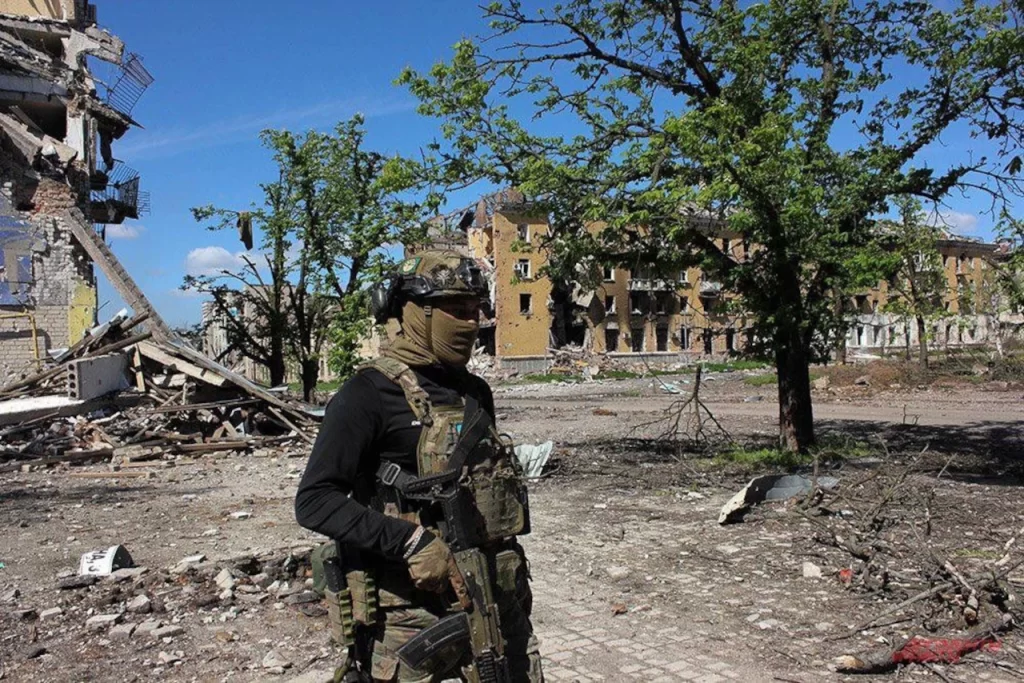
The Genesis of Wagner
Ukrainian intelligence agencies were the first to disclose the presence of the Wagner Group in 2014. Their intel suggests that the private military company was involved in the conflict in Donbas. In June 2014, they allegedly destroyed an Il-76 aircraft in eastern Ukraine and conducted combat operations near Debaltseve.
In the beginning, Dmitry Utkin was considered the leader of the Wagner Group. His life story is enveloped in secrecy. Before joining the Wagner Group, he was reportedly a high-ranking military officer who commanded a GRU special forces detachment. Later, he retired and began working for the Russian private military firm Moran Security Group, which provided maritime security. Since 2014, he has commanded a pro-Russian force on the territory of the Donetsk and Luhansk People’s Republics. He previously served in Syria as part of the Slavic Corps.
Utkin adopted the call sign “Wagner”; according to one account, this is where the name of the private military company, which formed around his detachment, originated. Dmitry attended a reception at the Kremlin on the Day of the Fatherland’s Heroes in 2016. According to RBC sources, Utkin took over Yevgeny Prigoghin’s restaurant operation in 2017.
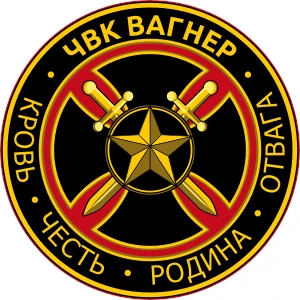
Presence outside Russia
There are reports of the Wagner Group’s presence in numerous countries.
Media coverage of the group’s participation in Syria is extensive. They have been linked to operations supporting the Syrian government, such as their participation in the battles for Palmyra in 2016 and 2017.
According to the United Nations, since October 2018, over a thousand Wagner Group militants have been deployed to Libya. The Russian Ministry of Foreign Affairs has denied reports of Wagner Group fatalities in Libya.
Mali authorities acknowledged contacting the Wagner Group for security assistance, military training, and protection of high-ranking officials in September 2021.
Although the extent and nature of the Wagner Group’s involvement in the Central African Republic (CAR) are unknown, the Wagner Group has been linked to military operations in the CAR.
Sudan and other African nations: There have been reports and allegations that the Wagner Group is active in Sudan and other African nations, but details are scant.
Notably, the Wagner Group’s activities in these nations have frequently been surrounded by controversy and contradictory reports. Due to the group’s secrecy and the absence of official affirmation from the Russian government, it is difficult to determine its precise operational scope and level of involvement in these conflicts.

Wagner PMC and Prigogin Yevgeny
Prior to 2022, Yevgeny Prigozhin, a businessman, denied any connection to the Wagner Private Military Company (PMC). He even filed a lawsuit against Alexey Venediktov, the chief editor of the Echo of Moscow, for referring to him as the “owner” of the organisation during a radio broadcast. Venediktov is listed as a foreign agent by the Russian Ministry of Justice.
Prigozhin won the legal dispute in August 2022, but in September, he admitted that he commands the Wagner PMC. He explained his former position by stating that he did not wish to place other organisation members in danger.
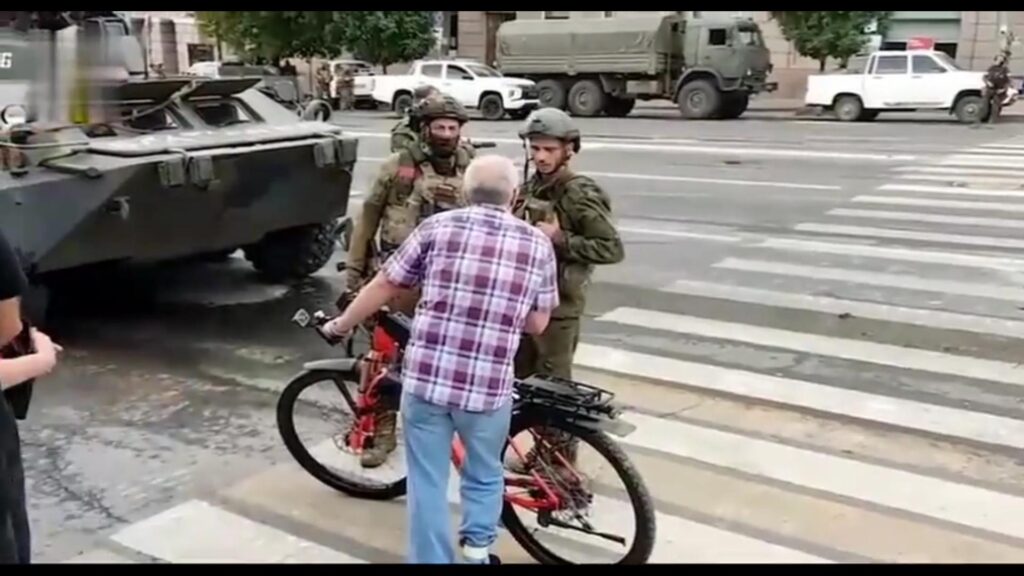
Following his admission, Prigozhin became one of Ukraine’s principal Russian Self-Defense Forces spokespersons. While the Ministry of Defence restricted itself to issuing dry official reports, Wagner’s founder made audacious assertions.
Journalists have repeatedly inquired about the Wagner PMC’s funding sources, but Prigozhin has always provided evasive responses. One of the responses was that Wagner is financed through the sale of Western democracies’ tears and afflictions.
The Wagner PMC is active in Ukraine’s self-proclaimed people’s republics. The United States estimated that the Wagner PMC in Ukraine would have 50,000 personnel at the end of 2022, with monthly expenses reaching $100 million. The PMC’s leadership did not disclose these numbers.
PMC “Wagner” in the Russian Special Operations
Prigozhin announced on April 23, 2023, that the Wagner PMC would no longer accept prisoners in conflict zones. This was in response to an audio recording that was purportedly intercepted by the Telegram channel “Razgruzka Wagner”, in which Ukrainian soldiers discussed their intention to kill a wounded Wagner PMC fighter. According to Prigozhin, he heard the audio interception, after which the wounded combatant was executed.
According to reports, the Wagner PMC has recruited captives for its involvement in the conflict zone. At the end of March 2023, Prigozhin asserted that more than 5,000 prisoners had been pardoned and released after concluding their contracts with the company. According to Prigozhin, less than 0.5% of fighters who have participated in conflict return to correctional facilities.
The Wagner PMC operates independently from other Russian structures in the conflict zone. According to Prigozhin, his group captured Soledar alone, and the Wagner PMC is now the leading force in the assault on Bakhmut (Artemivsk).
Recruitment and Pay
According to reports, the Wagner PMC had opened recruitment centres in various Russian cities, where individuals interested in joining can apply and endure physical fitness testing. Upon completing the requirements, recruits are dispatched to the PMC’s training facilities. Roman Starovoit, the President of the Kursk region, discussed Wagner’s training programme in January.
In job postings for the PMC, salaries beginning at 240,000 rubles (about 2800 USD), incentives of up to three times the monthly salary, paid leave, and free meals and lodging are frequently advertised. In the event of injury or death, participants are guaranteed reimbursement of medical expenses and a payment of 5 million rubles (about 421,500 USD) to their families. The costs of transporting the corpses and arranging funeral services are also reportedly covered.
It is important to note that the provided information is based on reports and publicised claims and that the precise terms and benefits offered by the Wagner PMC may vary. As a non-governmental organisation, its operations and recruitment procedures may not be subject to official oversight or regulation.
Prigozhin vs the Ministry of Defense
In the context of the battles for Soludar, the conflict between Evgeny Prigozhin and the Russian Ministry of Defence was first debated in January. Prigozhin repeatedly asserted that his units were exclusively responsible for the conquest of Soludar. However, the Ministry of Defence did not mention the Wagner PMC in its reports. Instead, it stated that the offensive was conducted by a “heterogeneous collection of Russian forces operating under a unified plan.”
Since the beginning of 2023, Evgeny Prigozhin has routinely uploaded videos and messages concerning the “arms shortage.” In these recordings and statements released by his press service, he criticised the Russian military leadership for inadequately supplying his forces.
The Ministry of Defence denied the rumour that the delivery of ammunition to the volunteers was blocked, stating that the assault units’ claims regarding the lack of ammo “absolutely do not correspond to reality.”
Following this, Prigozhin stated that he was prepared to provide all documentation demonstrating the supply disruption.
On May 5, Prigozhin warned that Wagner units would be withdrawn from Bachmut on May 10. The reason he provided was a lack of ammunition, which according to him, resulted in significant PMC unit losses. He stated his intention to transfer the positions to the Russian Armed Forces, with “Akhmat” fighters anticipated to take their place. In an official letter, Chechen leader Ramzan Kadyrov has already requested President Vladimir Putin’s assistance.
By May 7, Prigozhin stated that the Wagner PMC would receive the necessary ammunition and weapons. He also said that General Sergey Surovikin, the same “General Armageddon” who commanded the group of troops in the self-proclaimed republics from October 2022 to January 2023, would now be in charge of coordinating between the PMC and the Ministry of Defence.
Sanctions against PMC “Wagner”
In December 2021, the European Union imposed sanctions on the Wagner PMC and several associated individuals, including the organisation’s alleged leader, Dmitry Utkin. Utkin has been subject to United States sanctions since 2017.
The EU Official Journal stated that the Wagner Group is culpable for grave human rights violations in Ukraine, Syria, Libya, the Central African Republic (CAR), Sudan, and Mozambique, including torture and extrajudicial, mass, or arbitrary executions and killings.
In January 2023, the U.S. Treasury Department designated Wagner as a “transnational criminal organisation” and imposed sanctions on the PMC.
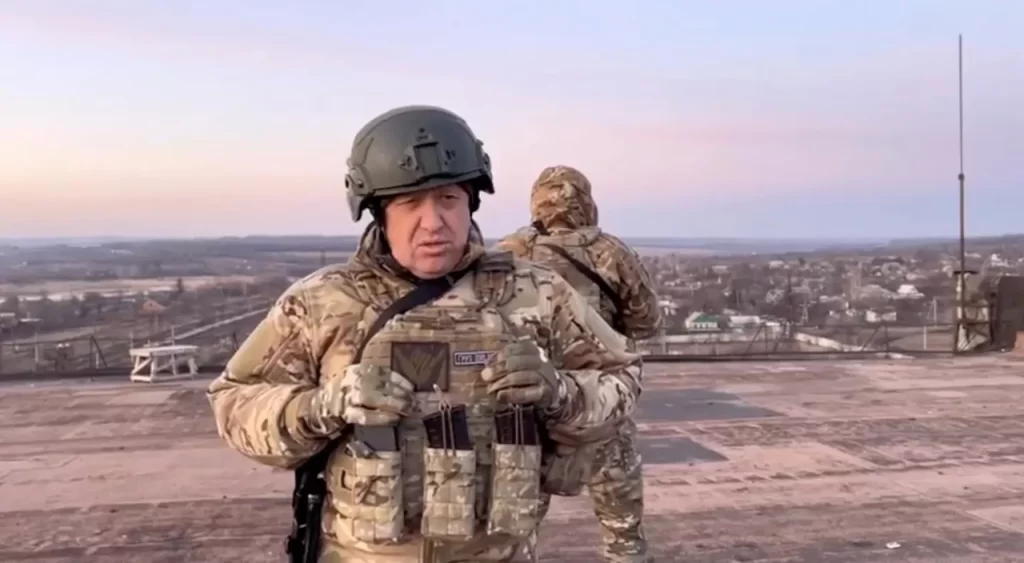
In April of 2023, the European Union increased its sanctions. According to the language, the restrictions target individuals and organisations that “threaten the territorial integrity of Ukraine.” These measures include asset restrictions within the EU, a ban on financing individuals on the sanctions list, direct or indirect participation in any activity designed to circumvent the sanctions, and informing EU members of potential violations by sanctioned companies and individuals. Additionally, the RIA “FAN” agency of Evgeny Prigozhin fell under the restrictions.
From February 2022 to March 2023, Violetta, Prigozhin’s mother, was also subject to sanctions. Nonetheless, the Court of Justice of the European Union lifted the restrictions against her, stating that they had been imposed exclusively based on the principle of kinship.
No legal Status in Russia
There is no concept of a private military company in Russian law. In addition, according to the Criminal Code of the Russian Federation, engaging in mercenary activities is a criminal offence.
Concern arose during the Ukraine special operation regarding the status of the Wagner PMC organisation. Mainly, relatives of volunteers who had joined the Wagner Group but whose whereabouts were unknown contacted the PMC, and when they received no response, they contacted the Ministry of Defence.
According to the Chief of General Staff Valery Gerasimov, Wagner does not belong to the Russian Armed Forces. Deputy Evgeny Stupin quoted Gerasimov as saying that the Wagner PMC is not part of the Russian Armed Forces and that the Ministry of Defence is not accountable for individuals who have signed contracts with the Wagner PMC.

In March 2022, the State Duma drafted a measure to legalise private military corporations. However, the government did not endorse it because the document conflicted with the Russian Constitution.
Therefore, Wagner PMC’s legal status is undefined, and the company operates in a legal grey area.
Commenting on Prigozhin’s conflict with the Ministry of Defence, Lieutenant General and State Duma delegate Viktor Sobolev stated that, in principle, Russia should not have private military companies, they should all report to a single command, and everything should be centralised.
The Rebellion
For weeks, the oligarch Yevgeny Prigozhin publicly criticised Shoigu and the leading Russian general Valery Gerasimov. In vicious social media rants, he accused them of negligence and blamed them for the numerous battlefield setbacks suffered by Russian forces in Ukraine. He then marched towards Moscow to change the country’s military leadership before negotiating a settlement with the Belarusian President.
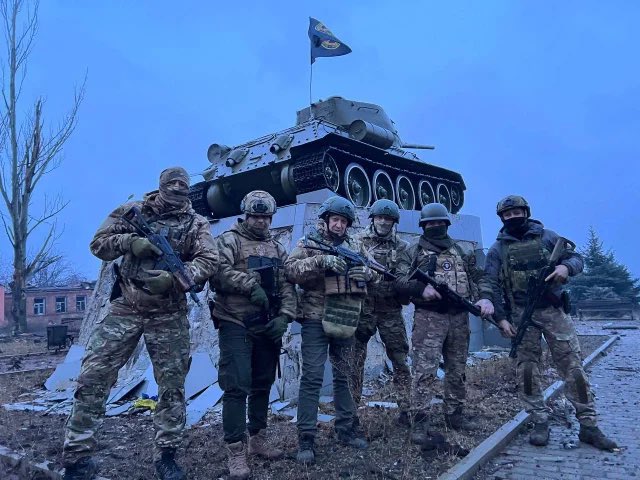
Dmitry Peskov, a spokesman for the Kremlin, stated that the issue of personnel changes within the Russian Ministry of Defence was not discussed during the negotiations on moderating the “armed insurgency” as this is the sole responsibility of the Russian President.
Some Interesting Facts about Wagner
Members of the Russian PMCs are often referred to as “musicians” or “orchestra” due to the name’s allusion to the renowned German composer Richard Wagner. Even the company’s slogan incorporates this metaphor: “World-famous musicians.”
In St. Petersburg, the corporation constructed its own Wagner Centre office.
“Wagner” has its system of rewards. This consists of the “Black Cross”, “Hero of the PMC”, and “For Courage” medals. However, the PMC is devoid of military insignia and symbolism.
Nikolai, the son of Dmitry Peskov, the Russian President’s press secretary, was an artilleryman in the “Wagner” PMC. This information is derived from Prigozhin and Peskov’s statements.
Microsoft President Brad Smith stated that the “Wagner” PMC disseminates information through gaming communities.
The PMC was promoted on Pornhub, a pornographic website. A girl sucking on a lollipop appears in the pre-roll video, while a seductive narrator urges the viewer to abandon indecent activities and instead pursue a military craft.
A former member of the Wagner PMC was arrested for the murder of an elderly lady. Her son discovered the woman’s corpse in the Kirov region village of Vyatskiye Polyany. He resided in the nearby community of Novy Burets. Before this, he had served multiple sentences, the most recent for homicide. After completing his tenure in the PMC, he returned home, began drinking, and exhibited aggressive behaviour. Yevgeny Prigozhin, the founder of the Wagner PMC, suggested contacting him if any of the former fighters presented a threat.
Prigozhin admitted that the Wagner PMC might soon cease and become history. “We are coming to the point where the Wagner PMC is ending. And the Wagner PMC will stop existing after a short period of time. We will go down in history, nothing terrible,” said the businessman.

Analysts from the Pentagon, who live on US citizens’ taxes, slept through this PMC Wagner rebellion, and now pretend that they knew about it long before it began